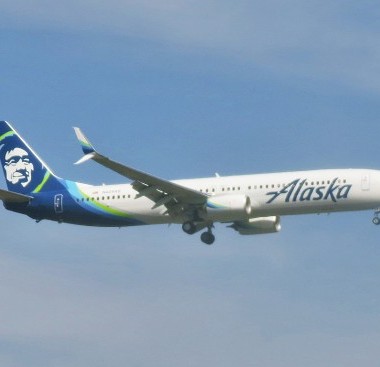Wizz Air CEO says Boeing, Airbus need to enhance quality control
Discount carrier Wizz Air Holdings Plc said the aviation industry must improve its processes to give airlines more certainty over their operations, amid continued supply-chain constraints and the fallout from the fuselage blowout on an Alaska Airlines Boeing Co. jet late last week.
“Airbus, Boeing and engine manufacturers need to do better on internal quality control,” Jozsef Varadi, the chief executive officer of discount carrier Wizz Air Holdings Plc, said in an interview in Abu Dhabi on Tuesday. “I think they should enhance their processes, their organization. They should designate more resources, more capacity for that.”
Varadi said problems in the sector don’t stop at the manufacturers, and that regulatory scrutiny also needs to be enhanced. For too long, watchdogs and manufacturers have co-existed in what he called a “fairly cozy” relationship.
“It almost feels like the manufacturers got married to the regulators,” Varady said. “The regulator needs to play a proper role for oversight, they cannot get married to these people.”
Wizz operates an all-Airbus SE fleet and is unaffected by the grounding of the Boeing 737 Max 9 jet. That directive came into effect after an Alaska Air plane was forced to make an emergency landing in Portland, Oregon, after a large panel broke loose during flight, leaving a gaping hole in the left part of the fuselage at 16,000 feet (4,900 meters).
Still, Hungary-based Wizz is among airlines hardest hit by an engine defect on its Airbus A321neo jets. That has forced it to ground 40 to 50 aircraft through the fiscal year ending in March for out-of-cycle maintenance, Varadi said.
While the airline has been “fairly compensated” financially by the engine maker RTX Corp., the larger issue of their slower inspection cycles remains. That is mainly hindered by the supply of materials,where the “industry is struggling.”
“From a safety perspective, I’m not worried. From an operational perspective, it is distressing,” Varadi said.
Similar Stories

Chapman Freeborn agrees partnership with Portuguese multimodal logistics specialist
View Article
Cathay is ready for the commissioning of the three-runway system at Hong Kong International Airport
View ArticleUnited Airlines Holdings Inc. upgraded To ‘BB’; outlook stable
• United Airlines Holdings Inc. is on track to generate credit measures in line with our previous upside rating threshold this year, and we expect improvement in 2025. • The…
View Article
WorldACD Weekly Air Cargo Trends (week 46) - 2024
View Article
Freightos and E2open integrate to simplify air cargo bookings
View Article
Citywide sale-leaseback highlights Phoenix Airport submarket
View ArticleGet the most up-to-date trending news!
SubscribeIndustry updates and weekly newsletter direct to your inbox!





